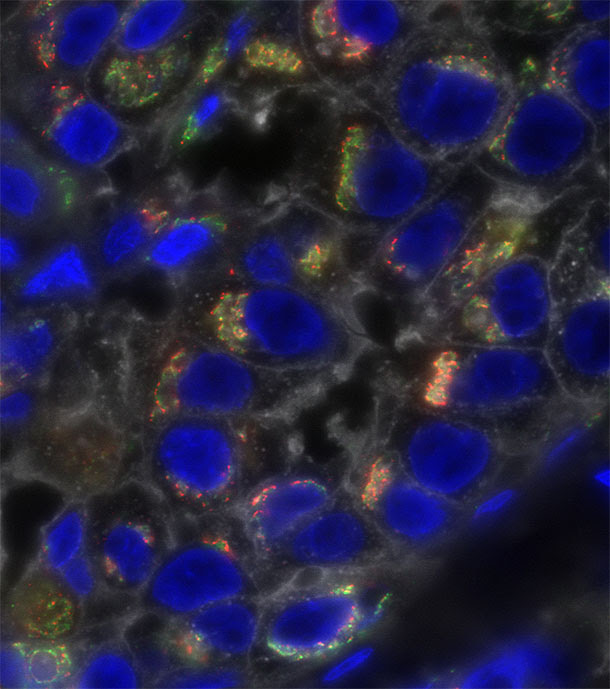| New from NCI |
| Video—Genomics: How DNA Can Inform Cancer Diagnosis and Treatment |
 | | If you missed the live broadcast, you can now watch the recording of our Facebook Live event. Listen as NCI subject matter experts discuss the use of genomics in cancer clinical trials and treatment. |
| Harnessing T-Cell “Stemness” Could Enhance Cancer Immunotherapy |
 | | A new study led by scientists in NCI’s Center for Cancer Research sheds light on one way tumors may continue to grow despite the presence of cancer-killing immune cells. |
Lymph Node Surgery for Advanced Ovarian Cancer
When women have surgery for advanced ovarian cancer, surgeons often remove all the lymph nodes in the area around the tumor. Learn about the findings from a study that evaluated this practice. |
| Immunotherapy Approved for Some Patients with Triple-Negative Breast Cancer |
 | | The Food and Drug Administration has approved the immunotherapy drug atezolizumab to be used with chemotherapy to treat some women with advanced triple-negative breast cancer. |
Hormone Therapy for Prostate Cancer
Hormone therapy for prostate cancer blocks or reduces the amount of male sex hormones the body makes. Learn about male sex hormones, how they can cause cancer to grow, and the different hormone treatments that can be used against prostate cancer. |
Hitting an Elusive Target in Pancreatic Cancer
A change in the KRAS gene drives tumor growth in most people with pancreatic cancer. At the same time, it is one of the most difficult targets in cancer research. Learn about the results from three studies that suggest a way to indirectly thwart pancreatic tumors driven by this gene.
|
| PDQ Summary Updates |
Laryngeal Cancer
We’ve updated our PDQ summary on treatment for laryngeal cancer with updated descriptions of the different stages of this disease. |










No hay comentarios:
Publicar un comentario